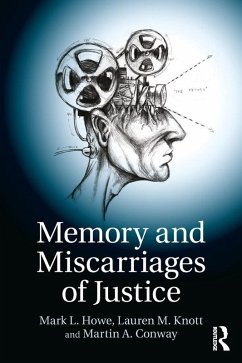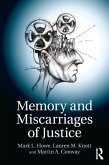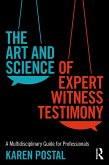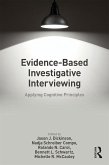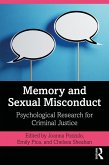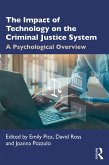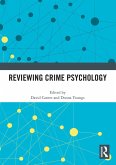The legal system has been slow to adapt to scientific findings about memory even though such findings have implications for the use of memory as evidence, not only in the case of eyewitness testimony, but also for how jurors, barristers, and judges weigh evidence. Memory and Miscarriages of Justice provides an authoritative look at the role of memory in law and highlights the common misunderstandings surrounding it while bringing the modern scientific understanding of memory to the forefront.
Dieser Download kann aus rechtlichen Gründen nur mit Rechnungsadresse in A, B, BG, CY, CZ, D, DK, EW, E, FIN, F, GR, HR, H, IRL, I, LT, L, LR, M, NL, PL, P, R, S, SLO, SK ausgeliefert werden.
"Overall, this book offers readers with a fascinating and informative insight into the role of memory across various aspects of law, and the affect memory has on judicial and legal systems. Any reader of this book will gain knowledge on various aspects of memory and its application to various aspects of law, which is particularly beneficial for those who are faced with the effects of memory and the evaluation of memory. As such, this book achieves its aims of informing its intended audience and, in my opinion, at points, goes beyond this; it implies the need for further collaboration between practitioners and academics to develop, evolve and enhance current best practice guidance."- Brandon May, Psychology Teaching Review
"Overall, this book offers readers with a fascinating and informative insight into the role of memory across various aspects of law, and the affect memory has on judicial and legal systems. Any reader of this book will gain knowledge on various aspects of memory and its application to various aspects of law, which is particularly beneficial for those who are faced with the effects of memory and the evaluation of memory. As such, this book achieves its aims of informing its intended audience and, in my opinion, at points, goes beyond this; it implies the need for further collaboration between practitioners and academics to develop, evolve and enhance current best practice guidance."- Brandon May, Psychology Teaching Review

